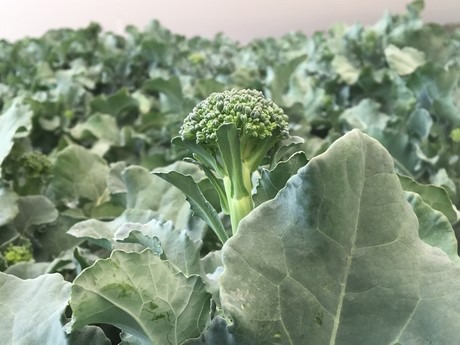The New Zealand Government has invested $232 million to boost jobs and opportunities in the primary industries sector, including horticulture, as part of budget 2020.
Agriculture Minister Damien O’Connor says it will support 10,000 people into jobs, especially at a time where the population begins its recovery from COVID-19.
“This is a significant investment which will grow and transform the primary sector," he said. “Together, as a nation, we are rebuilding from an economic shock not seen since the Great Depression. But there is a clear path through and the Government is committed to getting New Zealand working again. There are significant employment opportunities in our primary industries and we’re going to be training people to have the skills they need for the jobs we have. There are a lot of opportunities in front of us, we now need a skilled workforce to help us seize them."

The initiative aims to place at least 10,000 New Zealanders in primary sector jobs by rapidly retraining and absorbing workers displaced from other sectors like hospitality and aviation. At the same time, the Government is investing $1.6 billion in trades and apprenticeships training.
HortNZ Chief Executive, Mike Chapman said there are some fantastic career opportunities in horticulture.
‘This is thanks to increasing sophistication across plant varieties, growing techniques, harvesting practices, and sales and marketing. Within these areas, there are an infinite variety of roles, from hands-on, to technical to management," he said. "We’re really keen to see as many kiwis as possible join horticulture as part of New Zealand’s economic and social recovery. At the same time, we will still need skilled workers from the Pacific under the Recognised Seasonal Employer (RSE) scheme, particularly as we will not have the backpacker community to fill gaps. The RSE scheme has played a key role in our industry’s expansion over the past decade, which in turn, has created hundreds of jobs for kiwis. We do not see that situation changing."
The Budget will also fund new interim Level 3B Post Entry Quarantine (PEQ) greenhouse units providing secure containment for new imported plant varieties and breeding material that require testing for high-impact pests. This will enable the introduction of imported plant material for the horticulture sector to develop new and innovative high-value crops and cultivars.
“The Government is investing $38.5 million over four years to ensure the horticulture sector can grow and stay ahead of international competitors with access to safe plant breeding material and a focus on reaching new markets," he said. "On top of this, $6.8 million will provide secure greenhouse units for new imported plant varieties and breeding material. “This will help the high-performing sector to develop innovative high-value crops and cultivars while protecting New Zealand from high impact pests."
The Government is also setting aside $14.9 million over two years to redirect food from the primary sector, that would otherwise be wasted, to those in need.
HortNZ says that COVID-19 has shone a light on food security in New Zealand and the importance of ensuring every New Zealand has enough fresh, healthy food to eat. However, it believes there is still work to do to increase the Government’s understanding of the impact of central and regional government decisions on growers’ ability to grow produce and get it to market, with minimal environmental impact. One of the initiatives is expanding the school lunch programme so that 200,000 more children will get a free lunch every day, by the middle of next year, with the programme creating around 2,000 new jobs.
“COVID-19 has hit vulnerable communities the hardest and some families are struggling to put food on the table," Mr O'Connor said. "We’re scaling up school and community programmes with an additional 100,000 fruit and vegetable boxes to children over 10 weeks. We’re also investing in the development of digital platforms to enable other novel solutions to connect food with consumers.
Budget 2020 also provided additional funding for the Agriculture Production Statistics Programme. It will purchase a further year's collection of agricultural statistics from Statistics New Zealand, which the Ministry for Primary Industries (MPI) uses to inform decisions on trade negotiations, policy development and economic forecasting.
Full details can be found at www.budget.govt.nz/
